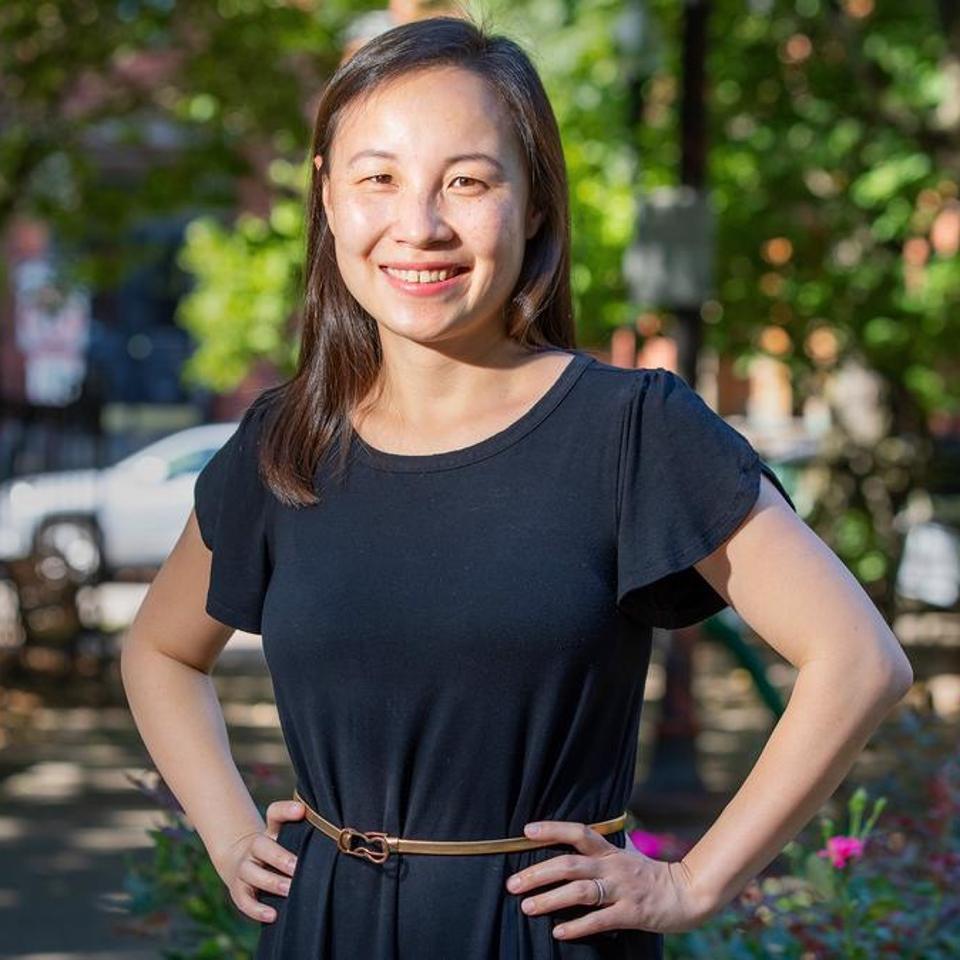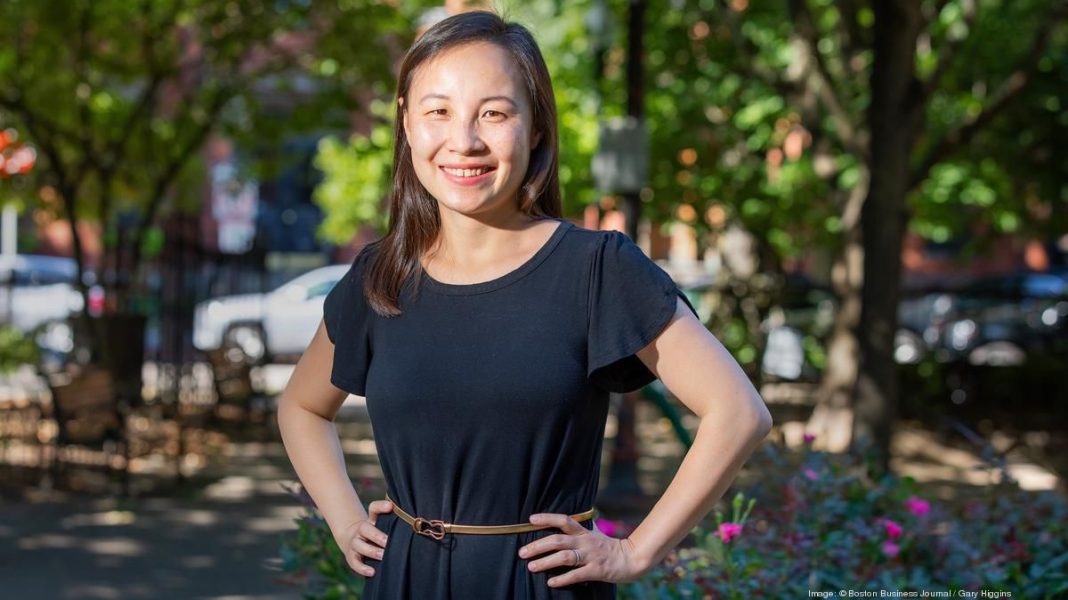
Lissy Hu, CEO of CarePort Health
Photo Credit: Gary Higgins/Boston Business Journal.
When we think of healthcare, we often envision hospitals and doctors’ offices. But a large part of medical care happens in nursing homes and rehabilitation facilities or in patients’ homes with the help of visiting nurses and other care professionals. Just a decade ago, patients and their families had to rely on information packets from hospitals to choose the best option. Dr. Lissy Hu and her innovative medical tech company, CarePort Health, have changed that.
In 2012, while in med school at Harvard University, Hu took a healthcare policy class with Professor David Grabowski. That’s where she learned that elderly patients and their families were challenged with accessing and coordinating post-acute care.
“I thought it was a problem that people were making decisions about where they were going to be for months, maybe even years, based on a piece of paper that the hospital gave them with names and phone numbers and addresses,” Hu said.
Because of her background in medicine, Hu understood that recovering from a surgery or treatment was heavily influenced by the quality of care patients received. Hu began exploring how technology could be used to help patients and their caregivers access the services that best suit their needs. Inspired by platforms like Hotels.com and TripAdvisor that made information about hotels all around the world accessible, Hu came up with the idea for a platform that would connect hospitals and patients to post-acute services and facilities.
“I wanted to bring that level of transparency into medicine. That’s what I initially set out to do – build a tool that would enable patients in hospitals to find post-acute care and make sure it was the right care setting for them,” Hu explained.
Hu took her idea to the Harvard Business School Business Plan Competition and walked away the winner. The success has not stopped. Over the last 9 years, CarePort has connected more than 1,000 hospitals to over 111,000 post-acute providers. Operating in 43 US states, Hu’s company handles 18 million referrals every year.
CarePort has seen great financial success as well. Hu has led the company through two acquisitions. The first was by Allscripts, a healthcare IT company, in 2016. In January 2021, CarePort had a second, more profitable acquisition by health care software corporation Wellsky for $1.35 billion.
Hu shared the experiences and advice that helped her turn a business idea into a company that was acquire twice in five years:
When You’re Choosing Your Business, Follow The Data And Your Heart
Hu knew she had a good idea with CarePort because recognized the need that patients, caregivers, post-acute services, doctors’ offices, and hospitals had for an effective coordination platform. She used data to see the gap in her industry, spot the opportunities for growth, identify her competition, and assess whether customers would pay for her service. She encourages other entrepreneurs to use data in the same way when developing their business ideas.
But Hu also highlighted the importance of passion in deciding whether to pursue a business: “You need data. But the other part is whether your heart is in it. Does it move you? Is this a problem that you care so much about that you want to wake up every single day to solve? As an entrepreneur, you face so many ups and downs, and it takes time to figure out all those market dynamics. If you’re not committed out the gate, it’s hard to weather those ups and downs.”
Balance Confidence And Humility When Developing Teams And Workflows
Hu shared that she had confidence she was building something valuable when she founded CarePort. But she was humble enough to do her research to make sure she was moving in the right direction. In the early days of the company, she visited nursing homes and hospitals and shadowed their staff to observe their workflows. This allowed her to build a platform that served her audience’s needs.
“You need to be able to keep an open mind and really listen to whether [what you offer] is something that would work for the people you want it to work for,” Hu said.
Hu took a similar approach to building her team. While she had a medical background that was important to the foundations of CarePort, she didn’t have much knowledge of technology or product development. So, she hired people who could support her in those areas.
“You want to hire people who are smarter than you. Rarely does an entrepreneur have every piece that they need. So, you have to be very intentional to seek those experiences and people out,” Hu advised.
Don’t Build For Acquisition, But If The Opportunity Arises, Weigh Your Options Carefully
Hu did not start CarePort with the intention or hope of being acquired. She cautioned that it’s dangerous to build for acquisition because the business world is unpredictable. However, she noted that if an offer for acquisition comes up, entrepreneurs should not be afraid to consider it.
Hu acknowledged that there is always risk that an acquisition could go badly because of poor integration, loss of control, or funding cuts. But her experiences have shown her that they can also create massive growth if the fit is right. For example, when CarePort was acquired by Allscripts, Hu and her team were able to access their massive network of hospitals and post-acute providers and make use of their established sales team.
For entrepreneurs fielding acquisition offers, she advised, “You have to think about the decision through two lenses: 1) Is this going to be a benefit to my customers? Because, ultimately, whatever is best for my business is going to be best for me and my team. And 2) Is there going to be a sort of cultural fit? Are they going to be committed to continuing to grow my team? Both those things matter,” Hu explained.
Hu shared that the relationship between CarePort and Wellsky is an excellent fit, and she’s confident about the impact her company will have on healthcare. As she continues to pursue her passion through business, Hu hopes that other women and minorities will also discover the power and fulfillment of entrepreneurship.
“I would really love to see more women and minorities starting companies and taking that risk, because when it goes well, when you can build, there’s nothing more rewarding than waking up every single day and tackling a problem that you feel is important to solve. There’s nothing more nourishing to the soul.”




